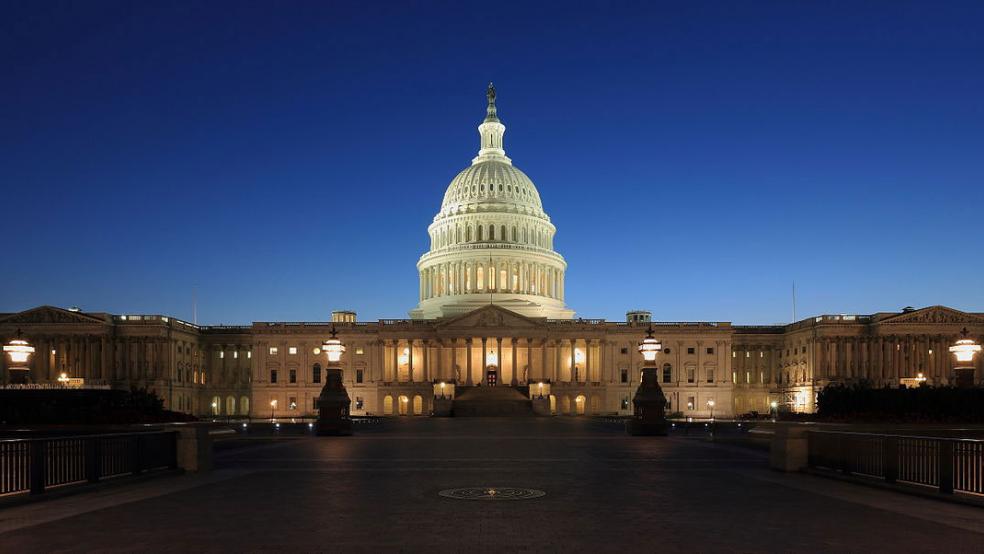President Trump predicted recently that passing major tax reform this year would be a walk in the park compared to the GOP’s failed effort to repeal and replace the Affordable Care Act. “I think after health care, taxes are gonna be so easy,” Trump told CBN founder Pat Robertson on The 700 Club.
But while there are numerous signs that the Trump administration, GOP congressional leaders, and key parts of the business community are coalescing around a plan, trying to rewrite the federal tax code for the first time since 1986 may be far more challenging than Trump is willing to admit.
Related: Conservatives Push 3 Simple Tax Cuts for 2017
Republicans made it clear on Tuesday that despite their debacle in pressing for health care reform without any Democratic assistance, they would again go their own way in drafting and passing major tax reform. As with health care, they intend to utilize obscure budget reconciliation rules to block a Democratic filibuster and approve legislation in the Senate with a simple 51-vote majority rather than the typical 60-vote super majority.
However, invoking those rules again won’t be easy, because the Republicans first must overcome deep divisions over defense and domestic spending issues, raising spending caps, and even raising the debt ceiling before they can finally agree to a new budget resolution for fiscal 2018.
That budget resolution would become the main vehicle for moving major tax reform legislation on an expedited basis, just as the fiscal 2017 budget was used to press for action on health care reform. The House Budget Committee recently approved a new budget resolution after months of internal GOP rancor, but there are no assurances it will survive on the House floor or in the Senate.
Related: The Best and Worst States for Sales Taxes
On Tuesday, Senate Majority Leader Mitch McConnell (R-KY) flatly rejected the idea of a bipartisan tax reform agreement during a meeting with reporters at the Capitol. He largely blamed Senate Minority Leader Chuck Schumer of New York and most other Senate Democrats for making demands that would be impossible for the Republicans to adhere to without abandoning many of its goals.
McConnell vowed that the Republicans would once again invoke budget procedures that would enable them to prevail with 51 votes. "We have been informed by the majority of the Democrats in a letter I just received today that most of the principles that would get the country growing again they are not interested in addressing," McConnell said.
Schumer and all but three other Democrats said in a letter to McConnell that they were prepared to begin negotiating major tax legislation this fall provided the Republicans meet three demands: that the Republicans drop the 51-vote reconciliation process, agree not to cut taxes for the top one percent of income earners, and pledge not to cut Social Security and Medicare.
McConnell and other Republican leaders bridled at what they consider to be Democratic poison pills unacceptable to the GOP and its allies. The Democrats, in turn, sharply criticized the White House and GOP-controlled Congress of doing the bidding of libertarian activists Charles and David Koch and the party’s far right.
Related: How Trump’s Tax Cut Plan Would Blow Up the Deficit
“There’s a real potential for bipartisan support on tax reform, but I think our Republican colleagues – dictated by the Koch brother-hard-right-wing of their party, is running away from it,” Schumer told reporters at the Capitol. “They say tax reform is hard, and it is, but it’s a lot harder if Republicans try to do it all by themselves.”
Until now, Trump and congressional Republican leaders have kept their deliberations over a tax plan under wraps, but that is starting to change.
Having resolved one of the thorniest obstacles to a deal by scrapping House Speaker Paul Ryan’s highly controversial proposal for a border adjustment tax on imports to pay for tax cuts, the White House and Congress are moving towards a plan to cut the top corporate tax rate from 35 percent to 15 percent. It would also create a territorial system of taxing foreign income along with a one-time tax on un-repatriated foreign earnings.
For individuals, Trump’s approach would consolidate the tax rates into three levels of 10 percent, 25 percent and 35 percent. It would also repeal the Alternative Minimum Tax, the estate tax and the Obamacare 3.8 percent net investment income tax. Finally, the plan would double the standard deduction and provide tax relief for families with child and dependent care expenses.
“This is a pass/fail exercise, and we will pass tax reform,” Treasury Secretary Steven Mnuchin said earlier this week in a pep talk to members of the Americans for Prosperity, the libertarian group funded by the Koch brothers that is preparing to spend millions of dollars in 36 states to promote the emerging GOP tax package.
Related: Why Trump’s Tax Cut Is a Tough Sell to the Poor and Middle Class
While the Republican tax plan is beginning to coalesce, there are concerns and objections that Trump and GOP leaders will have to overcome in the coming months. As currently conceived, Trump’s plan doesn’t pay for itself and could add as much as $7 trillion to the debt in the coming decade.
Also, some Republican lawmakers alarmed by the cost are pressing for a smaller reduction in the corporate and individual tax rates. Senate Finance Committee Chair Orrin Hatch (R-UT) told Reuters this week that even bringing the corporate tax rate down to 25 percent would be difficult.





